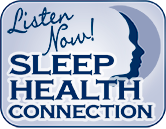Obstructive Sleep Apnea and your Risk for Heart Failure
Without treatment, middle-aged men are much more likely to suffer fatal consequences from OSA (obstructive sleep apnea). In OSA, a person’s airway collapses causing the individual to struggle to breathe while asleep. This study highlights that men with OSA have a 58% higher risk of developing heart failure. Men with the most severe OSA had a 68% higher risk for developing heart disease than those who do not have OSA.
Severe Obstructive Sleep Apnea is described as 30 or more breathing interruptions. These interruptions cause oxygen depletion and can last at least 10 seconds. Accompanying burst of adrenaline from sudden wakefulness increases blood pressure, which possibly contributes to vascular problems, according to researchers.
Researchers add that most people suffering from OSA do not get diagnosed until years and up to a decade after the onset of symptoms. Therefore, those most at risk for associated cardiovascular death are those individuals ages 30 to 50. “The take-away from our study is that obstructive sleep apnea is a serious condition that warrants medical treatment, said Daniel J. Gottlieb, M.D., M.P.H., lead study author and associate professor at Boston University’s School of Medicine. “Many patients don’t experience symptoms of obstructive sleep apnea, such as daytime sleepiness, or if they do, don’t mention it during routine medical exams. It’s important for anyone who suspects they have obstructive sleep apnea to discuss it with their primary care physician.” (July, 2010) Circulation: Journal of the American Heart Association.
At Dental Sleep Medicine of Illinois, we can help you understand your risk for Obstructive Sleep Apnea, and align a treatment that best meets your needs and lifestyle. Prevent serious health consequences and consult with us today.
ACo-authors are: Gayane Yenokyan, M.D., Ph.D.; Anne B. Newman, M.D., M.P.H.; George T. O’Connor, M.D., M.Sc.; Naresh M. Punjabi, M.D., Ph.D.; Stuart F. Quan, M.D.; Susan Redline, M.D., M.P.H.; Helaine E. Resnick, Ph.D., M.P.H.; Elisa K. Tong, M.D., M.A.; Marie Diener-West, Ph.D.; and Eyal Shahar, M.D., M.P.H. Author disclosures are on the manuscript.
The National Heart, Lung, and Blood Institute funded the study.


 New Year’s is a time for starting fresh and setting goals that you’d like to accomplish. For many people this comes in the form of New Year’s resolutions. Get fit, stop smoking, learn a new language and lose 30 pounds are just a few of the popular resolutions that just never seem to come to fruition. Instead of making promises you can’t keep again this year, face the reality and start making resolutions that are within your means. Here are 10 New Year’s resolutions you can actually keep:
New Year’s is a time for starting fresh and setting goals that you’d like to accomplish. For many people this comes in the form of New Year’s resolutions. Get fit, stop smoking, learn a new language and lose 30 pounds are just a few of the popular resolutions that just never seem to come to fruition. Instead of making promises you can’t keep again this year, face the reality and start making resolutions that are within your means. Here are 10 New Year’s resolutions you can actually keep:



(630) 369-5508